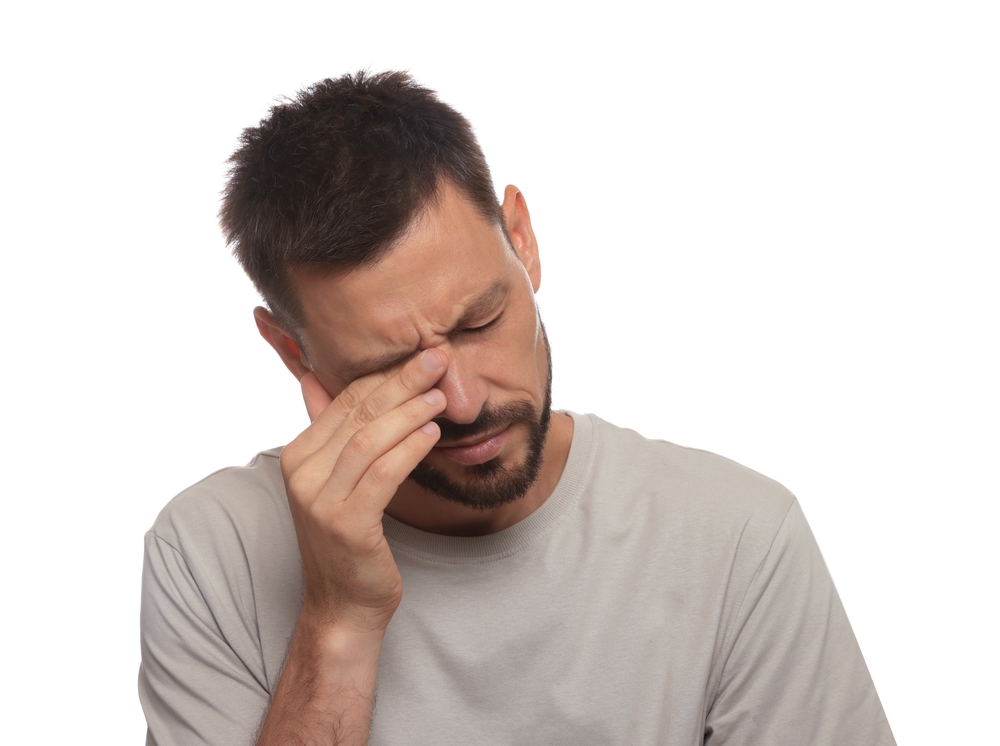
Dry eyes occur when your eyes don't produce enough tears or the tears evaporate too quickly. This can lead to a range of uncomfortable symptoms, including irritation, redness, a burning sensation, and even blurred vision. Dry eyes can be caused by various factors, such as aging, certain medications, environmental conditions, and underlying health conditions like Sjögren's syndrome or blepharitis.
If you're experiencing persistent dry eyes, it's essential to understand the root causes and take proactive steps to address the issue. By understanding the causes and symptoms of dry eyes, you can take the necessary measures to prevent and manage this condition effectively.
The Impact of Digital Devices on Dry Eyes
In today's digital age, the increased use of computers, smartphones, and other electronic devices has significantly contributed to the rise of dry eye cases. When you stare at a screen for extended periods, you tend to blink less, leading to faster tear evaporation and decreased lubrication of the eyes.
The blue light emitted by digital devices can also disrupt the natural balance of your tear film, causing further dryness and irritation. Additionally, the environmental factors associated with using these devices, such as low humidity, air conditioning, and poor lighting, can exacerbate the problem.
Preventing Dry Eyes While Using Digital Devices
To combat the impact of digital devices on your eye health, consider the following tips:
Practice the 20-20-20 rule: Every 20 minutes, take a 20-second break and look at something 20 feet away. This helps to reduce eye strain and encourage blinking, which can help maintain a healthy tear film.
Adjust your screen settings: Reduce the brightness and contrast of your digital devices to minimize the strain on your eyes. Consider using a matte screen filter or anti-glare screen protector to reduce glare and reflections.
Blink more often: Make a conscious effort to blink more frequently while using digital devices. Blinking helps spread the tear film across the surface of your eyes, keeping them hydrated.
Use artificial tears: Keep a bottle of preservative-free artificial tears nearby and use them as needed to supplement your natural tear production.
Adjust your posture: Ensure that your digital devices are positioned at eye level, reducing the need to strain your eyes. Take breaks and stretch your neck and shoulders to alleviate any muscle tension.
Lifestyle Changes to Prevent Dry Eyes
Making certain lifestyle changes can also play a significant role in preventing and managing dry eyes. Consider the following:
Stay hydrated: Drink plenty of water throughout the day to maintain proper hydration levels, which can support the production of tears.
Limit caffeine and alcohol: Caffeine and alcohol can have a dehydrating effect on the body, including the eyes. Try to moderate your intake of these beverages.
Quit smoking: Smoking can contribute to dry eyes by causing inflammation and reducing tear production. If you smoke, consider quitting to improve your eye health.
Manage underlying health conditions: If you have an underlying health condition, such as Sjögren's syndrome or thyroid disorders, work with your healthcare provider to manage it, as these conditions can contribute to dry eyes.
Nutrition Tips for Preventing Dry Eyes
Certain nutrients and dietary choices can also play a role in maintaining healthy eyes and preventing dry eyes. Consider the following nutrition tips:
Incorporate omega-3 fatty acids: Foods rich in omega-3 fatty acids, such as fatty fish, walnuts, and flaxseeds, can help reduce inflammation and support tear production.
Eat antioxidant-rich foods: Fruits and vegetables high in antioxidants, like berries, leafy greens, and bell peppers, can help protect the eyes from oxidative stress and support overall eye health.
Limit processed and salty foods: Excessive intake of processed and salty foods can contribute to inflammation and dehydration, which can exacerbate dry eye symptoms.
Choosing the Right Eye Drops for Dry Eyes
If your dry eye symptoms persist despite lifestyle and dietary changes, using the right eye drops can provide relief. There are various types of eye drops available, each with its own benefits:
Artificial tears: These over-the-counter drops help to temporarily lubricate and soothe the eyes.
Prescription eye drops: Your eye doctor may prescribe medicated eye drops to address the underlying causes of dry eyes, such as inflammation or tear production issues.
Preservative-free eye drops: These drops are less likely to cause irritation and are often recommended for long-term use.
When selecting eye drops, consider your specific needs and consult with your eye doctor to ensure you're using the most appropriate product for your condition.
Taking Care of Your Eyes for Overall Health
Dry eyes can be a persistent and frustrating condition, but with the right strategies, you can take proactive steps to prevent and manage this issue. By understanding the causes and symptoms of dry eyes, making lifestyle and dietary changes, and using the appropriate eye drops, you can maintain the health and comfort of your eyes.
If you're struggling with persistent dry eye symptoms, schedule an appointment with Your Eye Doctor P.C. We can provide personalized guidance and treatment to help you achieve long-term relief and maintain optimal eye health. Visit our office in Ashburn, Virginia, or call (703) 663-4290 to book an appointment today.






